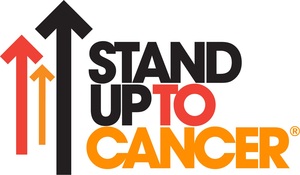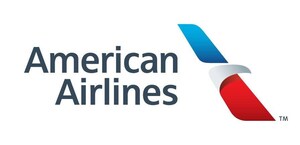Stand Up To Cancer and the Farrah Fawcett Foundation Announce New HPV Translational Research Team Grant
Research efforts will investigate approaches to develop novel immune therapies for HPV-associated cancers
HPV and Anal Cancer Foundation contributes to support of team
SAN DIEGO, April 7, 2014 /PRNewswire-USNewswire/ -- Stand Up To Cancer (SU2C) and the Farrah Fawcett Foundation, along with the American Association for Cancer Research (AACR), SU2C's Scientific Partner, announced the formation of a research team dedicated to HPV-related cancers during a press event today at the AACR Annual Meeting 2014, held here April 5-9. The HPV and Anal Cancer Foundation is supporting the translational research team by making an additional gift to Stand Up To Cancer.
Ellis L. Reinherz, M.D., chief of the Laboratory of Immunobiology and co-director of the Cancer Vaccine Center at Dana-Farber Cancer Institute in Boston, Mass., and Robert I. Haddad, M.D., disease center leader for head and neck oncology at Dana-Farber, will lead the research project titled "Therapeutic CD8 vaccines against conserved E7 HPV epitopes identified by MS."
The SU2C-Farrah Fawcett Foundation Human Papillomavirus (HPV) Translational Research Team Grant will provide $1.2 million in funding over three years for this innovative project. It will focus on patients with HPV-driven cancers (including anal, cervical, and head and neck cancers) who relapse following initial therapy, and for whom few therapeutic options are available, and will provide a novel approach to improving outcomes in this population.
"It's estimated that more than 30,000 HPV-associated cancers occur each year in the United States alone," said Sherry Lansing, SU2C co-founder, founder of the Sherry Lansing Foundation, and chairperson of the Entertainment Industry Foundation Board of Directors. "Research into new therapies that will benefit patients is urgently needed."
"Farrah was committed to the struggle against anal cancer and other forms of cancer," said Alana Stewart, chief executive officer and president of the Farrah Fawcett Foundation. "We are very pleased to continue Farrah's legacy by supporting this important scientific initiative."
"Our mother Paulette passed away in 2010 at the age of 53 after being treated for HPV-related anal cancer with the same, antiquated chemotherapy cocktail first administered to patients in the 1970s," said Justine Almada, executive director of the HPV and Anal Cancer Foundation. "By collaborating with other organizations who share our urgency for a cure, we hope to overcome barriers to therapeutic progress and end the suffering caused by HPV, which causes 5 percent of all cancers worldwide."
Research Team Selection Process and Project Information
The proposals for the SU2C-Farrah Fawcett Foundation Human Papillomavirus (HPV) Translational Research Team Grant were reviewed by a panel of renowned scientists. The committee was co-chaired by Waun Ki Hong, M.D., FACP, D.M.Sc. (hon.), and Lawrence D. Piro, M.D. Hong is division head and professor at The University of Texas MD Anderson Cancer Center, an American Cancer Society professor, and a Samsung distinguished university chair in cancer medicine. Piro is the president and chief executive officer of The Angeles Clinic and Research Institute and professor of clinical medicine at the Keck School of Medicine, University of Southern California.
The process began with a call for ideas by the AACR in September 2013, and eight finalists were invited to submit full proposals. Of the finalists, the committee recommended funding of the Reinherz and Haddad team. The team proposes to develop new vaccines and other immunotherapeutic approaches that stimulate cancer-killing immunity as treatments for patients with HPV-associated cancers, including cancers of the anus, cervix, and head and neck.
"Our project involves the development of vaccines that stimulate specific immune cells to attack HPV-driven cancer cells," said Reinherz. "While current vaccines effectively prevent HPV infection from taking place in unexposed individuals, they are unable to offer protection to those already exposed subjects either at risk of developing a tumor or with an existing cancer. Our vaccine is uniquely designed to attack the cancers even after tumor formation and, importantly, without causing collateral damage to normal tissues. The strategy is to 1) identify the tumor target, 2) activate specific immune cells, and 3) deploy these effectors at the tumor site for selective destruction of the cancer."
The researchers have developed a highly sensitive ion physics method to find "tags," called epitopes, on cancer cells that are entirely specific for the cancer and hence not found on the normal cells in the body. These tags can signal to receptors on a specific type of immune cell, called a cytolytic T lymphocyte (CTL), to attack and kill the cancer once CTLs are programmed by vaccination to do so in the patient's body. One CTL target that the team has already identified has been incorporated into a new therapeutic vaccine that will be tested on patients in a clinical trial as part of this research grant. The team will also use their epitope-identification technology to find other epitopes for the development of additional immunotherapeutic agents. Finally, they will identify the T cell receptors on CTL that provide the best immune response in order to re-engineer the patients' own immune cells in the laboratory for use as a cancer treatment.
"We are focusing in particular on patients with an HPV-driven cancer who have relapsed after their initial therapy," said Haddad. "These patients have few therapeutic options today, and we aim to provide a new and targeted approach to improving outcomes for them. Our expectation is that a therapeutic vaccine would also be less toxic than conventional chemotherapy currently being used in clinical practice."
The project is expected to begin July 2014.
The AACR is responsible for administering the grant and provides ongoing scientific oversight to ensure that progress is being made. Since the launch of SU2C, the AACR has played an integral role as SU2C's Scientific Partner by providing scientific leadership, expert peer review, grants administration, and oversight of progress.
About Stand Up To Cancer
Stand Up To Cancer (SU2C) raises funds to accelerate the pace of research to get new therapies to patients quickly and save lives now. SU2C, a program of the Entertainment Industry Foundation (EIF), a 501(c)(3) charitable organization, was established in 2008 by film and media leaders who utilize the industry's resources to engage the public in supporting a new, collaborative model of cancer research, and to increase awareness about progress being made in the fight against the disease. As SU2C's scientific partner, the American Association for Cancer Research (AACR) and a Scientific Advisory Committee led by Nobel Laureate Phillip A. Sharp, Ph.D., conduct rigorous, competitive review processes to identify the best research proposals to recommend for funding, oversee grants administration, and provide expert review of research progress.
Current members of the SU2C Council of Founders and Advisors (CFA) include Katie Couric, Sherry Lansing, Kathleen Lobb, Lisa Paulsen, Rusty Robertson, Sue Schwartz, Pamela Oas Williams, and Ellen Ziffren. All current members of the CFA were co-producers of the 2012 televised special. The late co-founder Laura Ziskin executive produced both the Sept. 5, 2008, and Sept. 10, 2010, broadcasts. SU2C was formally launched on May 27, 2008. Sung Poblete, Ph.D., R.N., has served as SU2C's president and CEO since 2011.
For more information on Stand Up To Cancer visit http://www.standup2cancer.org.
About the Farrah Fawcett Foundation
The Farrah Fawcett Foundation is a 501(c)(3) nonprofit foundation whose mission is to provide funding for cutting edge cancer research, to support prevention and awareness, and to help those struggling with cancer today through the creation of The Farrah Fawcett Fund for Patient Assistance at various treatment centers around the country.
Actress and Beauty Icon Farrah Fawcett was diagnosed with anal cancer in 2006. She filmed her treatment and journey in this cancer battle in what became 'Farrah's Story,' a documentary that aired to nine million viewers on NBC and was later nominated for an Emmy. Before her death in 2009, she established the Foundation because she 'wanted to make a difference.'
For more information, visit www.thefarrahfawcettfoundation.org.
About the HPV and Anal Cancer Foundation
The HPV and Anal Cancer Foundation is dedicated to empowering anal cancer patients and accelerating prevention and research methods that eliminate anal cancer and the virus that causes the majority of cases, HPV.
Specifically, the HPV and Anal Cancer Foundation aims to:
- Highlight the relevance of human papillomavirus (HPV) in contracting cancer.
- Accelerate a cure for the 5% of all cancers that are caused by HPV, with a focus on anal cancer.
- Advocate for prevention methods that will end anal cancer and HPV-related cancers, including gender neutral vaccination.
- Provide support for survivors, caregivers, scientists and providers connected to anal cancer.
The Foundation was incorporated in 2010 after the death of Paulette Crowther by her three children and primary caregivers, Justine, Tristan and Camille Almada. The Foundation has 501(c)(3) non-profit status in the USA and is a registered charity in the United Kingdom.
For more information visit www.analcancerfoundation.org. Follow on Twitter: @HPVAnalCancer or Facebook: www.facebook.com/analcancerfoundation.
About the American Association for Cancer Research
Founded in 1907, the American Association for Cancer Research (AACR) is the world's oldest and largest professional organization dedicated to advancing cancer research and its mission to prevent and cure cancer. AACR membership includes more than 34,000 laboratory, translational, and clinical researchers; population scientists; other health care professionals; and cancer advocates residing in more than 90 countries. The AACR marshals the full spectrum of expertise of the cancer community to accelerate progress in the prevention, biology, diagnosis, and treatment of cancer by annually convening more than 20 conferences and educational workshops, the largest of which is the AACR Annual Meeting with more than 18,000 attendees. In addition, the AACR publishes eight peer-reviewed scientific journals and a magazine for cancer survivors, patients, and their caregivers. The AACR funds meritorious research directly as well as in cooperation with numerous cancer organizations. As the Scientific Partner of Stand Up To Cancer, the AACR provides expert peer review, grants administration, and scientific oversight of team science and individual grants in cancer research that have the potential for near-term patient benefit. The AACR actively communicates with legislators and policymakers about the value of cancer research and related biomedical science in saving lives from cancer. For more information about the AACR, visit www.AACR.org. Follow the AACR on Twitter: @AACR. Follow the AACR on Facebook: https://www.facebook.com/aacr.org.
SOURCE Stand Up To Cancer
WANT YOUR COMPANY'S NEWS FEATURED ON PRNEWSWIRE.COM?
Newsrooms &
Influencers
Digital Media
Outlets
Journalists
Opted In






Share this article